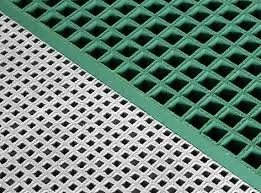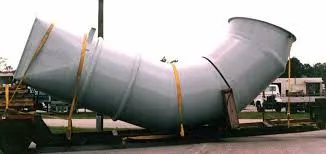
-
 Afrikaans
Afrikaans -
 Albanian
Albanian -
 Amharic
Amharic -
 Arabic
Arabic -
 Armenian
Armenian -
 Azerbaijani
Azerbaijani -
 Basque
Basque -
 Belarusian
Belarusian -
 Bengali
Bengali -
 Bosnian
Bosnian -
 Bulgarian
Bulgarian -
 Catalan
Catalan -
 Cebuano
Cebuano -
 China
China -
 China (Taiwan)
China (Taiwan) -
 Corsican
Corsican -
 Croatian
Croatian -
 Czech
Czech -
 Danish
Danish -
 Dutch
Dutch -
 English
English -
 Esperanto
Esperanto -
 Estonian
Estonian -
 Finnish
Finnish -
 French
French -
 Frisian
Frisian -
 Galician
Galician -
 Georgian
Georgian -
 German
German -
 Greek
Greek -
 Gujarati
Gujarati -
 Haitian Creole
Haitian Creole -
 hausa
hausa -
 hawaiian
hawaiian -
 Hebrew
Hebrew -
 Hindi
Hindi -
 Miao
Miao -
 Hungarian
Hungarian -
 Icelandic
Icelandic -
 igbo
igbo -
 Indonesian
Indonesian -
 irish
irish -
 Italian
Italian -
 Japanese
Japanese -
 Javanese
Javanese -
 Kannada
Kannada -
 kazakh
kazakh -
 Khmer
Khmer -
 Rwandese
Rwandese -
 Korean
Korean -
 Kurdish
Kurdish -
 Kyrgyz
Kyrgyz -
 Lao
Lao -
 Latin
Latin -
 Latvian
Latvian -
 Lithuanian
Lithuanian -
 Luxembourgish
Luxembourgish -
 Macedonian
Macedonian -
 Malgashi
Malgashi -
 Malay
Malay -
 Malayalam
Malayalam -
 Maltese
Maltese -
 Maori
Maori -
 Marathi
Marathi -
 Mongolian
Mongolian -
 Myanmar
Myanmar -
 Nepali
Nepali -
 Norwegian
Norwegian -
 Norwegian
Norwegian -
 Occitan
Occitan -
 Pashto
Pashto -
 Persian
Persian -
 Polish
Polish -
 Portuguese
Portuguese -
 Punjabi
Punjabi -
 Romanian
Romanian -
 Russian
Russian -
 Samoan
Samoan -
 Scottish Gaelic
Scottish Gaelic -
 Serbian
Serbian -
 Sesotho
Sesotho -
 Shona
Shona -
 Sindhi
Sindhi -
 Sinhala
Sinhala -
 Slovak
Slovak -
 Slovenian
Slovenian -
 Somali
Somali -
 Spanish
Spanish -
 Sundanese
Sundanese -
 Swahili
Swahili -
 Swedish
Swedish -
 Tagalog
Tagalog -
 Tajik
Tajik -
 Tamil
Tamil -
 Tatar
Tatar -
 Telugu
Telugu -
 Thai
Thai -
 Turkish
Turkish -
 Turkmen
Turkmen -
 Ukrainian
Ukrainian -
 Urdu
Urdu -
 Uighur
Uighur -
 Uzbek
Uzbek -
 Vietnamese
Vietnamese -
 Welsh
Welsh -
 Bantu
Bantu -
 Yiddish
Yiddish -
 Yoruba
Yoruba -
 Zulu
Zulu
Jan . 14, 2025 10:29
Back to list
Rectangular Tanks
In the realm of steel smelting, where extreme temperatures and rigorous processes define daily operations, choosing the right materials for equipment and safety plays a vital role. Fiberglass products have emerged as a game-changer for steel smelting plants, offering unmatched safety, durability, and versatility. As the industry evolves, understanding how fiberglass benefits the steel smelting process can provide operators and plant managers an edge in efficiency and safety compliance.
Another aspect that positions fiberglass as a superior material is its lightweight nature coupled with robust mechanical properties. Handling heavy equipment and materials is part of the routine in a steel smelting plant. By integrating fiberglass—known for being lightweight yet sturdy—into plant infrastructure, operations can experience enhanced maneuverability and reduced labor costs due to easier installation and maintenance processes. Moreover, fiberglass' ability to be molded into complex shapes allows for custom solutions tailored to the specific demands of a plant, enhancing operational efficiencies and outcomes. The ecological impact of industrial processes is becoming an increasingly important consideration for companies worldwide. From a sustainability perspective, fiberglass is advantageous as it contributes to energy savings and offers a longer service life, reducing waste and the frequency of replacements. Its sustainable lifecycle and potential for recyclability align well with contemporary eco-friendly mandates and carbon footprint reduction goals. For plant managers looking to leverage fiberglass within their facilities, partnering with suppliers who exhibit technical expertise and a track record of reliability is crucial. These partners bring insights into optimizing design and installation, advise on the latest technological advancements, and ensure that fiberglass products meet or exceed operational expectations. Innovations in fiberglass technology continue to expand its applicability and efficiency, making early adoption a strategic move for forward-thinking steel smelting operations. In summary, fiberglass products present a compelling value proposition for steel smelting plants by contributing to safety, enhancing performance, and supporting sustainability efforts. Its resistance to heat and corrosion, along with non-conductive properties and structural versatility, make it indispensable for modernizing and future-proofing steel smelting facilities. Embracing fiberglass solutions not only advances operational excellence but also positions steel manufacturers favorably in an increasingly competitive and environmentally-conscious market.


Another aspect that positions fiberglass as a superior material is its lightweight nature coupled with robust mechanical properties. Handling heavy equipment and materials is part of the routine in a steel smelting plant. By integrating fiberglass—known for being lightweight yet sturdy—into plant infrastructure, operations can experience enhanced maneuverability and reduced labor costs due to easier installation and maintenance processes. Moreover, fiberglass' ability to be molded into complex shapes allows for custom solutions tailored to the specific demands of a plant, enhancing operational efficiencies and outcomes. The ecological impact of industrial processes is becoming an increasingly important consideration for companies worldwide. From a sustainability perspective, fiberglass is advantageous as it contributes to energy savings and offers a longer service life, reducing waste and the frequency of replacements. Its sustainable lifecycle and potential for recyclability align well with contemporary eco-friendly mandates and carbon footprint reduction goals. For plant managers looking to leverage fiberglass within their facilities, partnering with suppliers who exhibit technical expertise and a track record of reliability is crucial. These partners bring insights into optimizing design and installation, advise on the latest technological advancements, and ensure that fiberglass products meet or exceed operational expectations. Innovations in fiberglass technology continue to expand its applicability and efficiency, making early adoption a strategic move for forward-thinking steel smelting operations. In summary, fiberglass products present a compelling value proposition for steel smelting plants by contributing to safety, enhancing performance, and supporting sustainability efforts. Its resistance to heat and corrosion, along with non-conductive properties and structural versatility, make it indispensable for modernizing and future-proofing steel smelting facilities. Embracing fiberglass solutions not only advances operational excellence but also positions steel manufacturers favorably in an increasingly competitive and environmentally-conscious market.
Next:
Related Products









